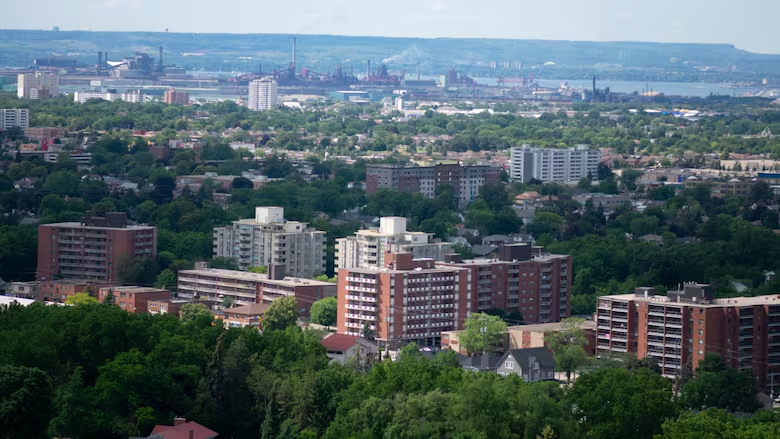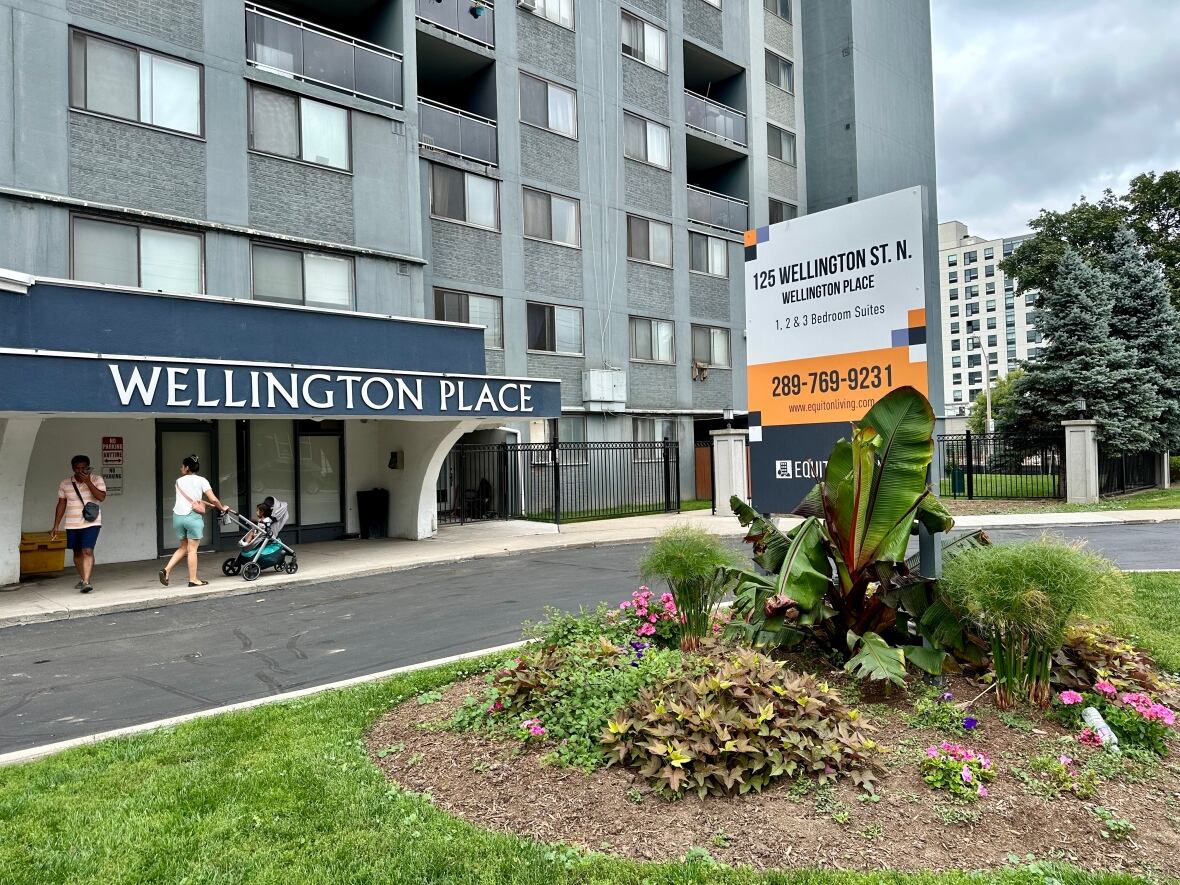Landlords of 275 Hamilton-area buildings have applied for above-guideline rent hikes since 2017
In 2022 there were at least 19 corporate landlords who applied to raise rents above provincial guidelines

Newly released data from Ontario's rental housing tribunal analyzed by CBC News shows landlords of 275 properties in Hamilton, Burlington, Niagara Region and nearby areas applied to raise rents above provincial guidelines (AGI) from 2017 to 2022.
CBC's analysis of the data found that in 2022, 28 of the 32 applications in the Hamilton region could be traced back to 19 corporate landlords. While the Ontario Landlord and Tenant Board (LTB) data shows the number of applications filed between 2017 and 2021, it did not provide landlord information for those years.
The data CBC analyzed enumerates each AGI filed to the LTB between January and August 2022.
It was obtained through an access to information request, initially submitted and exclusively shared with CBC News by the Association of Community Organizations for Reform Now (ACORN), a community union of low- and moderate-income people.
Since 2017, rental prices have risen sharply amid Ontario's housing crisis.
Hamilton's rental market has seen the average listing price across the city grow from $1,681 in 2019 to $2,212 in 2023, according to data from the Canada Mortgage and Housing Corporation (CMHC) and Zumper. The average is based on units of all sizes.
Use the map below and zoom in or click to see which addresses applied for above-guideline rent hikes from 2017 to 2022
Lulu Xi, 23, used to live in a Hamilton highrise on 125 Wellington St. N., owned by Equiton.
She says she moved out because of deteriorating living conditions that went unaddressed, ranging from flooding to managers entering units without notice to dealing with mice, cockroaches and bed bug infestations — all the while being asked to pay $400 for an above-guideline rent increase that hadn't been approved by the LTB.
"It enrages me … it's hard enough to afford rent at this point," Xi told CBC Hamilton, adding that she has two matters before the LTB related to her time there.
"I'm just happy to be out of there."

Equiton spokesperson Kathy Gjamovska said the company applied for the increase to "help support the ongoing work required to improve the resident experience."
She said the Equiton was "aware of numerous deferred maintenance issues" when it acquired the building in 2021.
Gjamovska said the company has notified residents of the rent increase application to give them time to save up for the potential hike, ask questions or discuss their personal situation with a resident manager. She also said they are not expected to pay additional rent before its approval.
She said Equiton has spent over $8.3 million on property improvements and $140,000 on pest control measures. Gjamovska added the company plans to spend another $5.3 million in 2024 and 2025 to improve the building.
She said she can't speak to Xi's experience, but said the company has addressed over 900 work orders in 2023 and, on average, complete those in two to three days.
"Resident satisfaction is our top priority," Gjamovska said.
Liz Scott, Stoney Creek's ACORN chair, said such increases should be banned and said ACORN members protested outside a Barton Street East apartment on April 18 demanding the same.
"It's a loophole for rent control ... it's a growing problem," she said in a phone interview on Monday.
Scott said these kinds of increases make life especially hard for people like her, who have a fixed income through programs like the Ontario Disability Support Program.
She said instead of applying for AGIs, landlords should use federal and provincial government programs that promote energy retrofitting.
Tony Irwin, president of Rental Housing Providers of Ontario, said about 80 per cent of Ontario's apartment buildings were built before 1980.
Residences built after Nov. 15, 2018 aren't subject to provincial rent control.
"Leaving these buildings in the state they're in is not realistic," Irwin said.
"These are major capital projects, it's significant dollars involved to do this work, and the AGI system allows some of that cost to be passed along to residents."

He said landlords' costs have gone up the last few years, including property taxes, utilities and labour rates.
Irwin points out that some landlord applications for AGIs are turned down by the LTB.
"There's a process and landlords have to show the costs are legitimate," he said.
METHODOLOGY: How CBC News analyzed applications for above guideline rent increases in Ontario
The data in this story was compiled by Ontario's Landlord and Tenant Board, released through access-to-information requests. Province-wide data was provided to ACORN Canada in two separate releases — one without landlord information from January 2017 to December 2021 with 2,990 AGIs, and another with landlord information from January to August 2022 with 470. This data was then exclusively shared with and analyzed by CBC News.
CBC News identified major corporate landlords using a combination of the available LTB data, company and address searches, as well as publicly available information about acquisitions and ownership.
To estimate the number of rental units affected by AGIs filed by Starlight Investments, CBC News aggregated information published on property management websites and third-party sites such as Apartments.com.
To calculate the percentage of AGIs granted, the two provincial datasets were combined with an earlier dataset from the LTB obtained by CBC News, which includes 1,813 AGIs filed in the Greater Toronto Area between April 2010 and March 2020. Duplicate cases were reconciled with the provincial 2017-21 data, then analyzed to determine how many AGIs were granted out of 2,253 resolved cases.
In the final table listing AGIs by property address, minor discrepancies, such as identical addresses with differing postal codes or municipalities, were reconciled using Google Maps to verify the correct locations.
Research and data analysis: Aloysius Wong, Associate Producer (February – April 2024)
Additional research and data cleaning: Perry Lupyrypa (February 2024) and Molly MacNaughton (April 2024)
With files from Aloysius Wong, Andrew Lupton and Samantha Beattie

